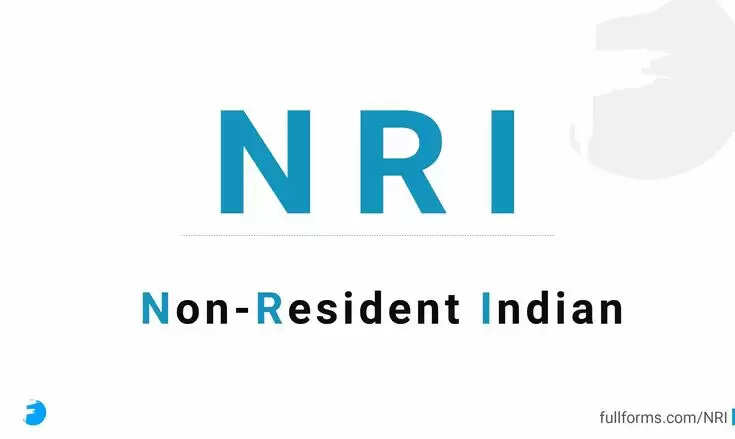What Is The Full Form of NRI? What Is It's Meaning?

In an increasingly interconnected world, people often move across borders for various reasons, be it for education, employment, or personal pursuits. As a result, acronyms and terms related to international migration have become a part of our everyday vocabulary. One such acronym that you may have come across is "NRI." In this article, we will explore the full form of NRI and delve into its meaning.

What Does NRI Stand For?
NRI is an acronym that stands for "Non-Resident Indian." It is a term commonly used in India and the Indian diaspora to refer to individuals of Indian origin or descent who live outside of India. NRI status is associated with a unique set of legal and financial implications, which we will discuss in more detail shortly. But first, let's understand the meaning and significance of NRI.
The Meaning of NRI
Non-Resident Indian, or NRI, is a legal status that categorizes individuals who are citizens of India but reside in a foreign country for an extended period. This status distinguishes them from "Resident Indians," who primarily live within the territorial boundaries of India.
The categorization as an NRI is significant for several reasons:
-
Financial Transactions: NRIs have specific rules and regulations governing their financial transactions, including the ability to open specific types of bank accounts in India, invest in Indian financial markets, and own property in the country.
-
Taxation: NRIs are subject to different tax regulations than Resident Indians. They are generally exempt from paying taxes on their foreign income in India, but they may still have tax obligations in their country of residence.
-
Voting Rights: NRIs have the right to vote in Indian elections, but the process may differ from that of Resident Indians, typically involving absentee voting or voting at Indian embassies and consulates.
-
Legal Matters: NRIs may encounter unique legal considerations, such as the handling of their assets and estates in India, as well as legal matters related to family, property, and investments.
-
Education and Employment: NRIs often return to India for education or employment opportunities, and their status may affect admissions to educational institutions and their eligibility for certain government jobs.
NRI Status Categories
NRIs are further categorized into two main categories based on the duration of their stay outside India:
-
NRI (Non-Resident Indian): An individual is classified as an NRI if they have spent less than 182 days in India during a financial year (April 1 to March 31). NRIs are eligible for certain financial and tax benefits, as mentioned earlier.
-
PIO (Person of Indian Origin): PIO is a broader category that includes individuals who may not qualify as NRIs but have a significant connection to India through their ancestry, birth, or marriage to an Indian citizen. PIO status also comes with certain privileges, including the ability to own property in India.
Conclusion
In an era of globalization and increased mobility, understanding terms like NRI is crucial for those navigating international borders. Non-Resident Indian, or NRI, signifies individuals of Indian origin residing outside India and carries specific legal, financial, and cultural implications. Whether you are an NRI, a PIO, or simply interested in the diverse Indian diaspora, comprehending the meaning and significance of NRI status is essential for a deeper understanding of the global Indian community.

